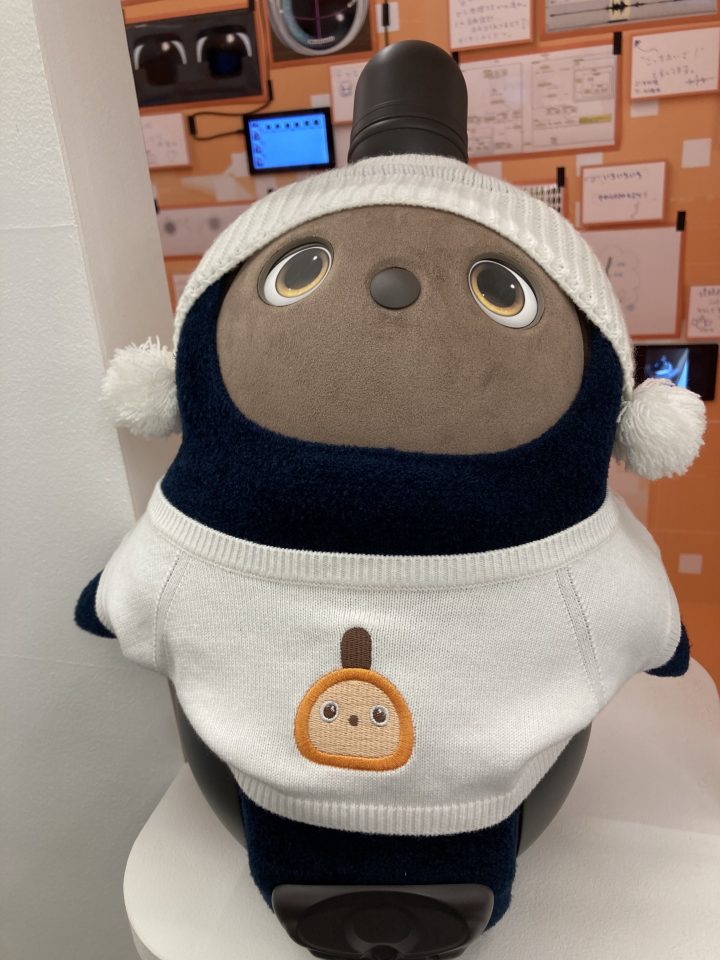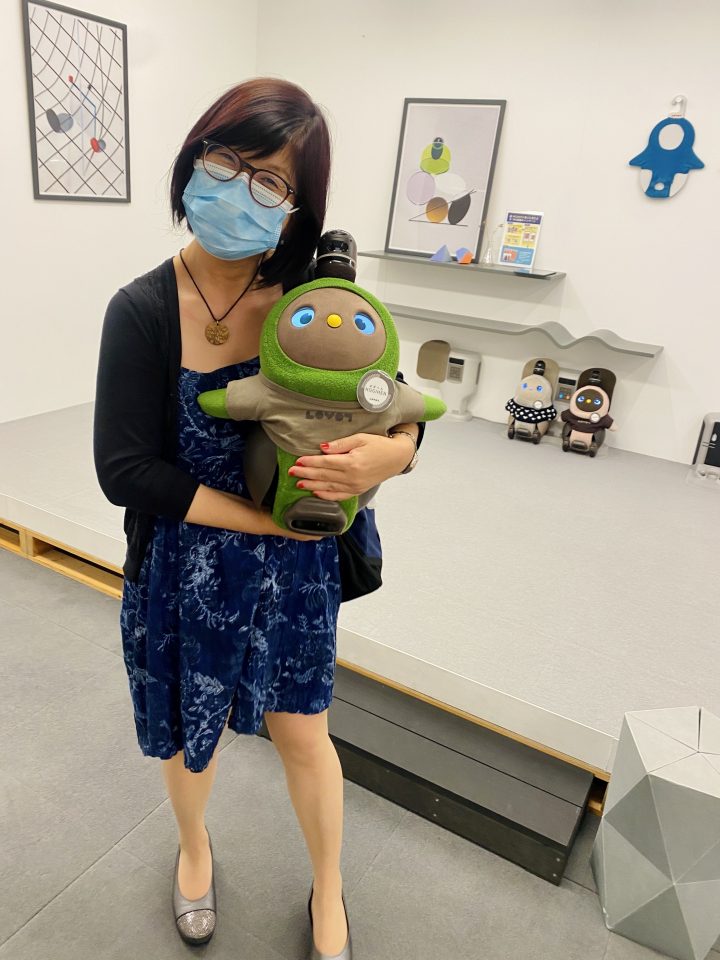
Lovot Robot:
A New Mobile Social Robot to Improve the Quality of life for Persons with Dementia
About
Approximately 50 million people worldwide are living with dementia. Social robots have been developed and tested to determine whether they improve the quality of life for persons with dementia. A new mobile social robot, LOVOT has advanced artificial intelligence and sensor technologies built in.
LOVE x ROBOT = LOVOT
Lovot is an innovative consumer home robot developed in Japan that utilizes AI technology and machine learning to emulate lifelike behaviors and establish meaningful relationships between robots and humans. Our research project involves two robots, Mango and Kiwi, and aims to study their interactions with the public, particularly in Canadian long-term care homes.

Objective
With our collaborators Dr. Kelvin Tan Cheng Kian (Singapore University of Social Sciences) and Dr. Vivian Weiqun Lou (University of Hong Kong), this study aims to explore the potential efficacy and how persons with dementia interact with the social robot. We will compare country and cultural differences in response to the robot.
- Investigate the experiences and perceptions of using the social robot LOVOT among older adults in Canadian long-term care homes.
- Examine LOVOT’s potential in addressing loneliness and boredom in older adults residing in long-term care facilities in Singapore, Hong Kong, and Canada.
- Collaborate with Singapore and Hong Kong in a three-country study to expand the understanding of LOVOT’s impact.
Significance
Our research holds significant importance as LOVOTs promote love and affection. This is the first pilot of LOVOTs in Canada, allowing us to interact with diverse communities and comprehend people’s attitudes toward these robots. The study will provide insights into the facilitators, barriers, and psychological benefits of employing social robots in Canadian long-term care settings. Moreover, the cross-cultural comparison between LOVOT usage in Singapore, Hong Kong, and Canada will yield valuable findings. The outcomes will shape future iterations of LOVOT, ensuring inclusivity for different populations and informed by cross-cultural research.
Learn More on News and Magazine!
Community Engagement

Our team actively participates in information and community engagement sessions. Recently, we collaborated with the Dementia Friendly Café, organized by Burnaby Seniors Outreach and the Burnaby Neighborhood House. By preparing engaging presentations, customized questionnaires, and puzzles, and assembling the LOVOT robots, we facilitated an interactive experience for attendees. Many participants enjoyed watching the robots walk around, approach people, and even signal to be held.
Click here to view the 2023 Community Engagement Report

Our Team
This Project is led by: Dr. Lillian Hun (PI) and managed by Hiro Ito (M.Sc. student in Population and Public Health).
Current Team Members: Joey Wong, Mario Gregorio, Jason Fu, Sahar Allen, Helen Banh, Samaa ElSayed, Karen Wong, Hannah Fong, Maryam Anwer, Olivia Du, Yumna Khan, Lily Wong, Farideh Fardinia, and Hossein Moussavi.
Our overarching research question: What are the impact and experiences of using a social robot LOVOT among older people living in long-term care (LTC)?
The study results will inform future research and practice about the adoption of assistive technology for supporting the health and well-being of older persons living in LTC.
Gallaries





